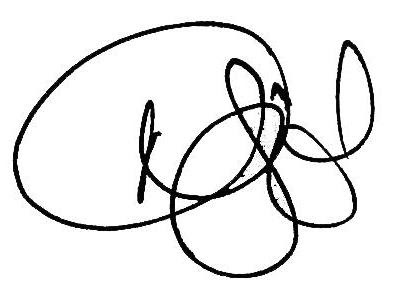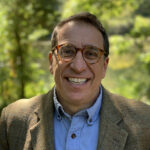Thursday, March 5, 2020 | 9th Adar 5780
Dear All,
The coronavirus is spreading, and it will get worse before it gets better.
Batten down the hatches, wash your hands, follow public safety advice, be considerate to others – and don’t freak out.
And the aftermath of the Israeli elections and the ongoing US elections – same advice…
But as the velocity of travel, literally, starts to slow, I want to argue that we – you, me, all of us – do a cleanse in the next few weeks.
And I get this idea from thinking carefully about the deep lessons from the Jewish calendar right now:
First: Purim isn’t an isolated holiday. It comes to help us get ready for Pesach, existentially as well as physically. Purim is “the world turned upside down.” No mention of G!d in the story. Getting drunk. Cross-dressing. Purim comes to shake us out of false certainties. It comes to question the components of our identity, the relationship between inner and outer, the tension between who we are and what we have.
And Purim does this because it kicks off an eleven week period from Purim to Shavuot. Seder night is the fulcrum of the whole period. And seder night is the night that we ourselves go free; the night that we leave the narrow places. We leave the ways that we’re enslaved by the world, and the ways that we self-enslave ourselves.
That’s why we have Purim.
To remind us that the day after Purim – in this case next Tuesday night, the 10th of March – is time to start getting rid of our chametz.
And getting rid of our chametz means, in a different sort of language, doing a cleanse.
I sometimes do one at this time of year, and haven’t properly for a few years. And now the coronavirus – and the fact that I had to cancel a trip to Israel next week – has come to really help me get me back on track. So I’m excited, truly, to start a cleanse next week. Here are some of the things that I will do – and I invite you to join me in this. (I’ll do some, but not necessarily all. Feel free to choose your own adventure.)
- Cut out caffeine.
- Cut out alcohol.
- Cut out added or processed sugars.
- Cut out dairy and cut out industrial meat. [The latter, for sure, you should do year-round; if you try it for a month you’ll certainly feel better.]
- Cut out white flour.
- Eat way more greens.
I know that, for me, my body craves sugars (including alcohol) and that caffeine zooms my energy and then spikes it. When in the past I’ve done a cleanse like this I always – always, without exception – feel better after a couple of weeks. I feel lighter, clearer, more focused. Less addicted in my eating. Calmer. I think probably kinder as well.
So I really encourage you to do some or all of this.
Don’t do it as self-abnegation.
Don’t do it as punishment.
Don’t do it to deprive yourself.
Do it as a gift to yourself, and for that matter to people who care about you.
It’s pretty striking that we don’t get addicted to spinach or broccoli – I’ve never heard of that. But sugar and carbs and caffeine and alcohol – those are addictions. They do absolutely stop us from being truly free, from being our best selves. So that’s the first thing.
And then the physical analog as well. As we clean out our bodies – and our refrigerators and our pantries – declutter your home or office as well. Just get rid of stuff. Give it away. Throw it away. Recycle it.
We have too much stuff, and it stops us from being truly free.
(And – again – if you’re an ascetic, or someone who has suffered from an eating disorder, or for that matter someone who knows yourself to be pulled in that direction, then ignore this advice.)
But for most of us: (1) we do have too much stuff; (2) it does connect at some level to our self-identity – which is why getting rid of stuff is hard, and why Purim especially comes to help us loosen up around this; and (3) it’s clearer now than at any moment in Jewish history that we not only have too much stuff as individuals; as a society we’re overconsuming the world. We’re collectively being made sick by our addiction to stuff.
So – get rid of stuff. It’s better for you; your home will feel calmer; and it’s better for the world.
And that leads me to my third and last point:
Make sure that your cleanse isn’t just about you.
We live in a narcissistic and selfish society. The moral example of some of our political and cultural leaders is making things worse and not better. That’s why it is vital that, in tandem with cleansing our bodies and cleaning up our homes, we also strive to bring goodness and kindness into the world.
So as you’re doing your own cleanse, think about doing some or all of these things, too:
- Give more money to someone on the street. I know. Perhaps a not-obvious place to start. But anyone you walk past who’s on the street has less than you do. If you can spend a bit less money on luxury food, or on another pair of sneakers, or dinner out, then you can give $5 or $10 or $20 to someone who’s on the street. It won’t make a difference in your life, and it may mean that someone else gets to eat a meal they wouldn’t otherwise eat.
I’d add: it’s not accidental that one of the mitzvot of Purim is matanot la’evyonim, giving gifts to the poor. Taking steps towards becoming more free, towards becoming a version of our best selves, begins by reaching out – literally, individually – to someone who has less than I do; - Commit in advance to having some part of your cleanse continue post-Pesach. You’ll figure out these next four weeks what that might be. Maybe, having tried it, you’ll cut out industrial meat and dairy for good. Maybe you’ll decide not to buy more clothes till Rosh Hashanah. But start the cleanse knowing that (1) it is time delimited – it’s just nowish until Pesach, but that (2) we really do want to be free; we really do want to be better people. The world actually needs us to eat more healthily and to live more lightly;
- Commit to supporting Hazon. Please give a gift to Hazon, if you haven’t yet given us a 2020 gift. The work we’re doing is important. It has never been more important. We have to fund the work we’re doing and we have to build reserves. If you believe that the Jewish community needs to respond to the climate crisis; if you believe that we ought to be strengthening Jewish life in the process; if you believe that we should be renewing Jewish wisdom in light of the world’s current challenges – then please become a stakeholder in Hazon. We genuinely need your support. I hope that this too will be an expression of being your best self – a way that, I hope, you feel proud to be a stakeholder in the larger enterprise of what we’re trying to do;
- And finally – commit to wider change. This is the 50th anniversary of Earth Day – April 22nd. Pencil that morning in your calendar if you’re in the NY area. We have something big we’re going to announce and you’re invited to join us.
And note – if you’ve been away, on some other planet – that this is an election year. Don’t just watch CNN or your internet feed. Please give money to candidates who will work for a more sustainable world for all. Please give time if you can. If you’re leading a Jewish institution – plan to invite candidates to come and talk about the climate crisis, locally and nationally, at your institution this fall. It will make a difference.
I end with this thought, back on the coronavirus – a thought which is at once anodyne and also a deep truth.
When our bodies get sick, they’re telling us something. They’re saying we might need to slow down a little, our immune system is weakened, we’ve been over-doing it, we caught a bug, we’re not sleeping well, we’ve been traveling too much, we’re not eating healthily, we’re not happy with part of our life.
We know that the human body is a miracle, and that when – if we can – we sleep and eat and exercise and spend time with people we love, and switch off our electronica – that, slowly, we recharge. We feel better.
And the same can be true for a whole society, a whole interconnected planet earth, both in sickness and in health.
So now: let’s understand COVID-19 as a manifestation of too many flights, too much intensity, too much unhealthiness. Let’s remember how wise and how ancient Jewish tradition is. Let’s pay attention to the gift of Purim, the gift of Pesach, the gift of the Jewish calendar.
And let’s, individually and collectively, slow down, eat more healthily, consume less stuff, act more kindly to others — and thus at least start to create a better world for all.
Shabbat shalom, tzom kal, Purim sameach,

Nigel
